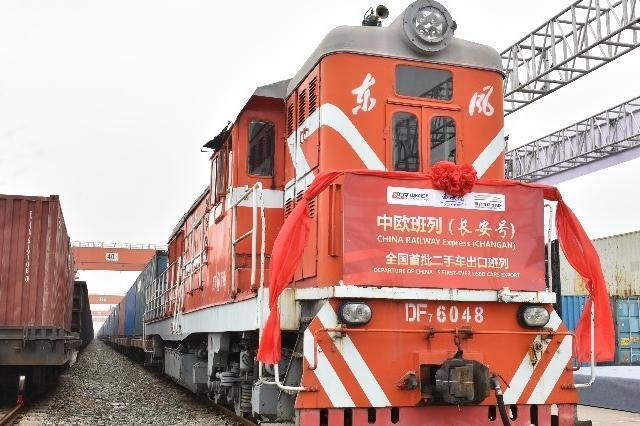
Let me start with a bit of wonderful news: Next Tuesday, Nov. 6, the Chang’an Cargo Train (a.k.a. China Railway Express) is to make a short stop in Ankara. It is then going to pass under the Bosphorus, using the Marmaray tunnel. This is going to be the first direct cargo train traveling from Xian, China, to Europe, arriving at Prague passing through Bulgaria, Serbia, Hungary and Slovakia. At long last, the Turkish corridor to Europe is becoming operational.
On this occasion, I have three positive and one negative point in mind regarding the Asian transformation that the Belt and Road Initiative (BRI), which President Xi Jinping, is heralding.
First, the BRI is about changing the hardware of international trade. All the talk about the U.S.-China trade war is about software, about WTO rules, customs tariffs and non-tariff barriers. There is absolutely no discussion among the international community about the hardware of international trade. There’s nothing on the logistics infrastructure for cross border trade, roads, railroads, ports, and container terminals. Even talking about security along trade routes has a 19th century sound to it. It’s almost as if technical issues aren’t worth talking about, because they’re on autopilot anyway. This is a huge fallacy.
Look at the facts. When it comes to international trade, you first need to go West in order to get to the East or visit north every time you go south. In order to send our containers to Pakistan, we in Turkey first need to send them to either Copenhagen or Hamburg. Why? That’s where the large container ports serving the East are located. The hardware of international trade is as important as the software of international trade, if you ask me.

To be absolutely clear, I don’t think this is a sinister device to prolong Western domination. It’s just history. In the past, production centers were located in the West and the goods were then shipped to the East. No more. In the last 50 years, the share of China in global manufacturing has increased from less than 10 percent to more than 25 percent. Countries in the West like the U.S., France, Germany and Italy have seen their shares decline, while those in the east, like Korea, India, Indonesia, Thailand, and Turkey have seen their shares rise.
Yet the hardware of international trade remains Western-focused. The BRI is the first attempt to change this. It’s all about south-south connectivity, and Chinese leadership to make this happen is good for Turkey.
Second, the BRI is not only about attracting Chinese investment, it provides a vision for the newly industrialized countries of the east. Note that it’s not about one huge project connecting China to Europe, but a collection of national projects, all contributing to the same objective.
Chang’an Cargo Train, for example, is to pass under the Bosphorus using the Marmaray tunnel, which was completed by a Japanese-Turkish consortium in 2008. It is not only a rail tunnel to connect Europe to Asia, but also a Turkish contribution to the BRI. Good things happen when people come around a common vision for the future.
Third, the Chang’an Cargo train is also useful in dealing with problems at each border crossing, as the rules and ease of border crossing changes from one country to another. In this respect, the BRI is about the integration of Asia into the global economy. Once Asia has the hardware of trade, it will also get to learn about software integration, as the West has done in the past century.
Here, however, is my cautionary point: The BRI is also about the integration of the Muslim world into the global economy. If the 20th century is about China’s integration into the global economy, the 21st century will be known as the Muslim world’s integration. This is all thanks to President Xi’s BRI vision. However, regarding the integration of Muslims into the global economy, China is still not leading, but obstructing progress.
Let me be blunt: China’s treatment of the Uighurs in Xinjian is direct support to Salafi radicalization in the whole Muslim world. It is nothing short of the atrocities in Bosnia as a recruitment item. Jihadists looking for fresh recruits are probably overjoyed to see that the Chinese state is cracking down on their co-religionists.
Turkey, which has been doing its utmost to deal with ISIL, is one of many countries gravely concerned about this, but like others, it is refrained to speak up. This is unfortunate. We are in a war for Muslim minds, and if we fail to deal with this direct terrorist threat to our common values, we will lose many more battles.